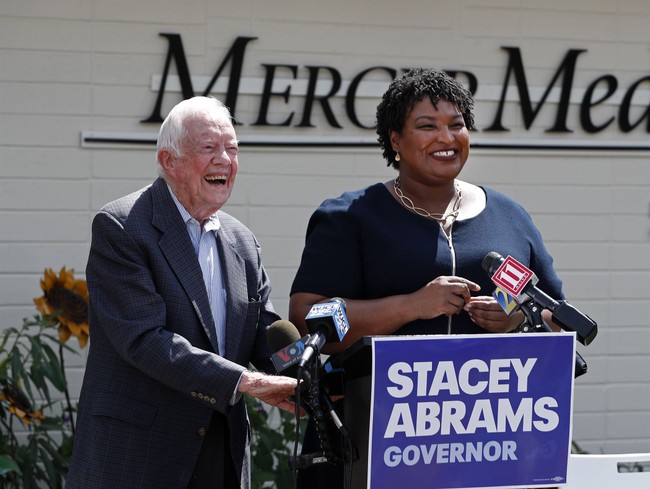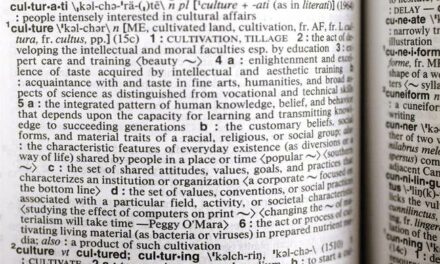We support our Publishers and Content Creators. You can view this story on their website by CLICKING HERE.

By now, everybody knows that the 39th president of the U.S., Jimmy Carter, died on Sunday at age 100. Here in Georgia, we’ll see wall-to-wall coverage of everything Carter ever did and said for weeks now. On Sunday, social media was all Jimmy, all the time.
Advertisement
I know that we’re not supposed to speak ill of the dead; as my friend and colleague Robert Spencer wrote, “Now, as we all learned in Latin class, de mortuis nisi bonum, that is, only say good things about the dead, and by most accounts, Jimmy Carter was a decent fellow who tried to do the right thing by his lights.”
The truth is that Carter lived a remarkable life, rising from the peanut farms of Plains, Ga., to the Oval Office. Just making it to 100 years is noteworthy in itself. He was the first president born in a hospital, and he saw the astonishing technological advances and cultural changes that only someone who has lived a century can witness.
At the same time, there’s a lot of retconning of the Carter legacy since his passing, and the Atlanta and Georgia media will have much to do with that burnishing. And while it’s true that Carter gave his life to service, the emphasis on his Habitat for Humanity work and his stint in the Navy — both admirable things — will overshadow his leftism, his disdain for Israel, and his troublesome theology.
When Carter first ran for governor of Georgia, his main opponent was former governor Carl Sanders. At the time, Georgia was monolithically a Democratic Party state, and the Democrat primary was the de facto general election. Carter ran as a more conservative Democrat and characterized Sanders as uppity, urban-focused, and too liberal on racial issues. Carter aligned himself with Alabama’s segregationist former and future governor, George Wallace (who won Georgia’s Electoral College votes in 1968 as a third-party candidate), and secured the endorsement of racist newspaper publisher Roy Harris.
Advertisement
Carter campaigned as a populist conservative Democrat, won the election, and proceeded to govern as a progressive. It was a bait-and-switch of the highest order.
For Our VIPs: I Have Some Theories Why Jimmy Carter Is Still Kicking — And Staying in the Headlines
He left the Governor’s Mansion in 1975 because the state constitution at the time limited the governor to a single consecutive term. Shortly afterward, he decided to run for president, and he used a similar strategy as he did in his gubernatorial campaign, tacking toward the center and governing as a leftist. He won, largely because his opponent was Gerald Ford, the symbol of a Republican Party still wearing the albatross of Watergate.
I won’t go into Carter’s disastrous term in the White House; Lord knows that’s been analyzed to death. My friend and colleague Stephen Kruiser touched on it in Monday’s Morning Briefing, and I’m in agreement with him when I say that Carter’s presidency is most notable for giving us the Reagan Revolution.
Carter became an even worse ex-president than he was a president. He never could resist the chance to badmouth his Republican successors, and he constantly sided with the “Palestinian” cause and did everything he could to thwart Israel’s right to exist peacefully. His treatment of Israel alone undoes any supposedly wonderful Sunday School lesson and every Habitat for Humanity house he ever had a hand in building.
In his later years, Carter became just another garden variety far-leftist, as his effusive support of Stacey Abrams demonstrated. He also sat back as his grandson traded on his name in a quixotic effort to become another progressive Georgia governor. As he lay on his deathbed and spent an eternity in hospice, his family trotted him out as a prop. Reportedly, he wanted to live long enough to vote for Kamala Harris, and he voted by mail. Instead of a quiet, dignified 100th birthday celebration, the image of a barely conscious Carer that the family circulated on social media was one of the saddest, most pathetic displays that dishonored him more than anything else.
Advertisement
We’ve seen so many people make a big deal out of Carter’s Christian faith, and I have no doubt that he heard “Well done, good and faithful servant” when he arrived at Jesus’ side on Sunday. However, his theology was almost as left-leaning as his politics. Dr. Albert Mohler pointed out on a special edition of his Briefing podcast on Monday that Carter wasn’t as theologically conservative as his Baptist identification led people to believe.
Mohler noted that Carter’s entry onto the national political stage was taking place at the same time as the conservative resurgence in the Southern Baptist Convention. But Carter wanted nothing to do with conservative Baptist orthodoxy.
“Jimmy Carter was very much an opponent of that conservative resurgence,” Mohler said. “When he spoke of Scripture, and he did so repeatedly, what he demonstrated was what was known in the more conservative sense perhaps, as a neo-orthodox understanding of Scripture, which is to say just in shorthand, that the Bible can be called the Word of God, but it is not the Word of God in terms of the actual words.”
“But Jimmy Carter was also allied with more progressivist forces in the south, and that included progressivist forces as they defined themselves in the Southern Baptist Convention,” Mohler added. “That was the side that lost.”
The Carters eventually left the Southern Baptist Convention over the conservative movement within the denomination, but you’ll never hear that in the encomia that will dominate the media over the next few weeks.
Advertisement
The truth is that most Georgians will preface their tributes to Carter with “I didn’t agree with him on much, but…” That might be the former president’s biggest legacy in his home state.
Editor’s Note: An earlier version of this story stated that Carter voted in person; instead, he voted by mail. We apologize to our readers for this error.

 Conservative
Conservative  Search
Search Trending
Trending Current News
Current News 







